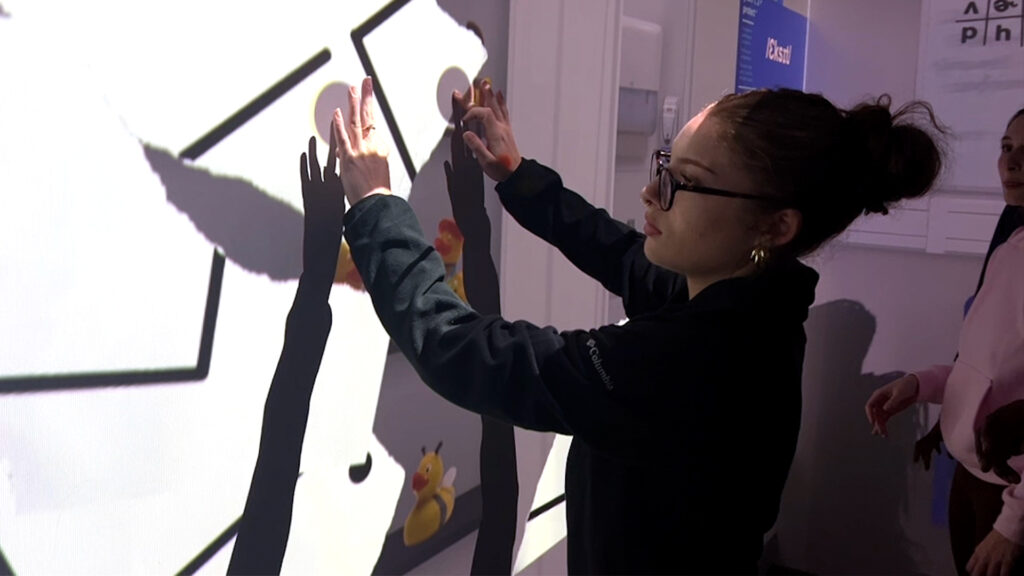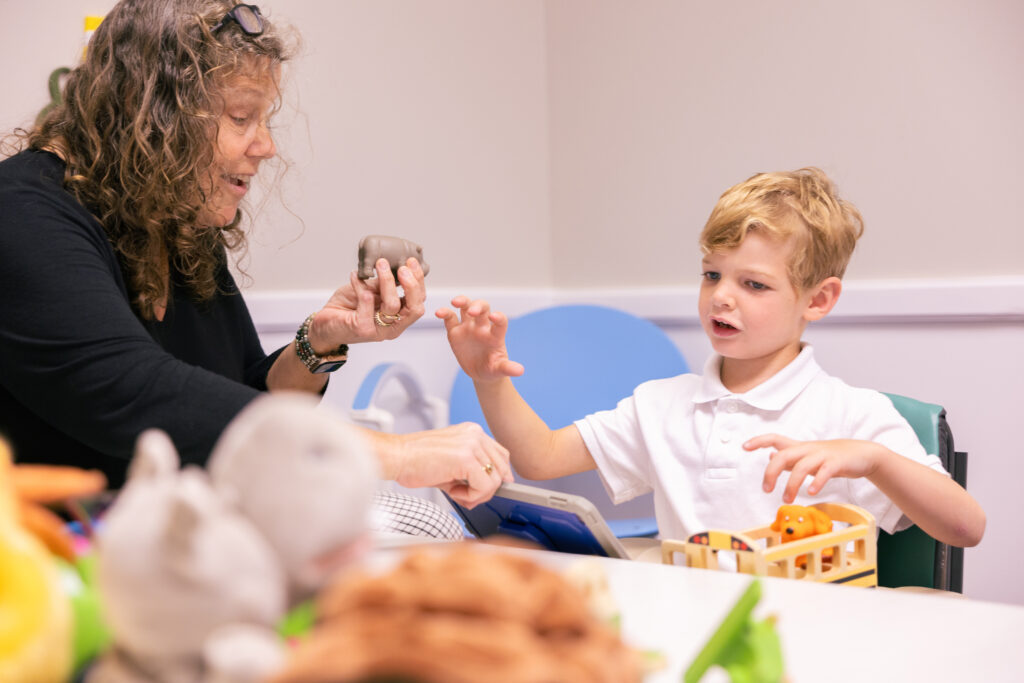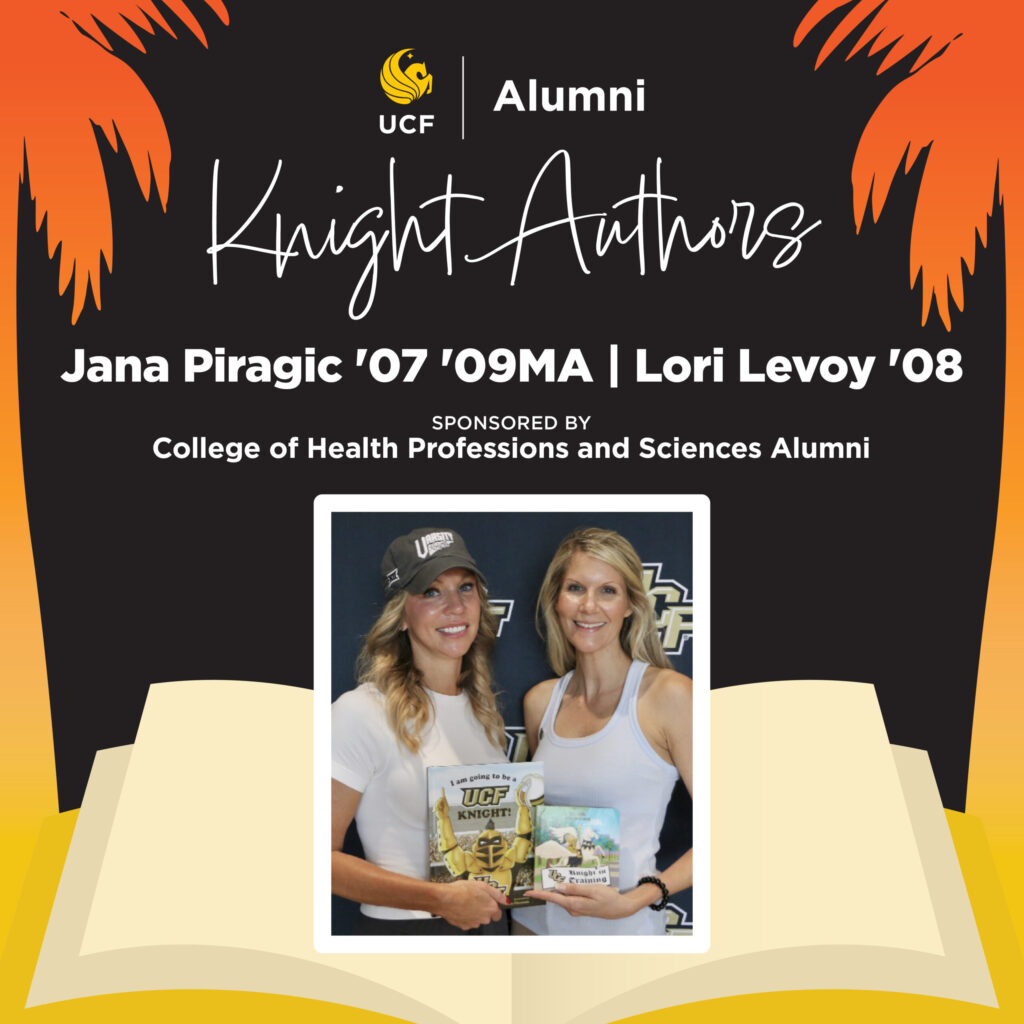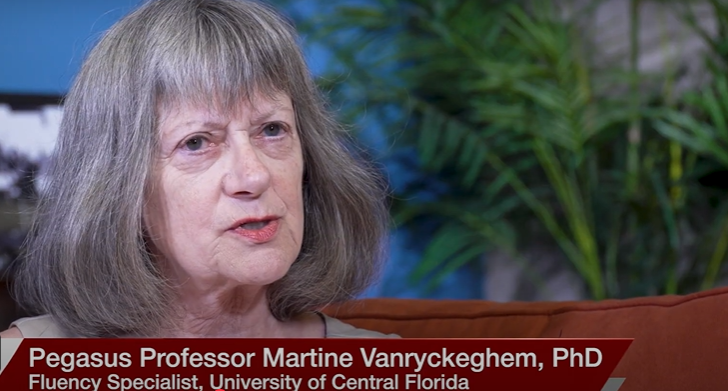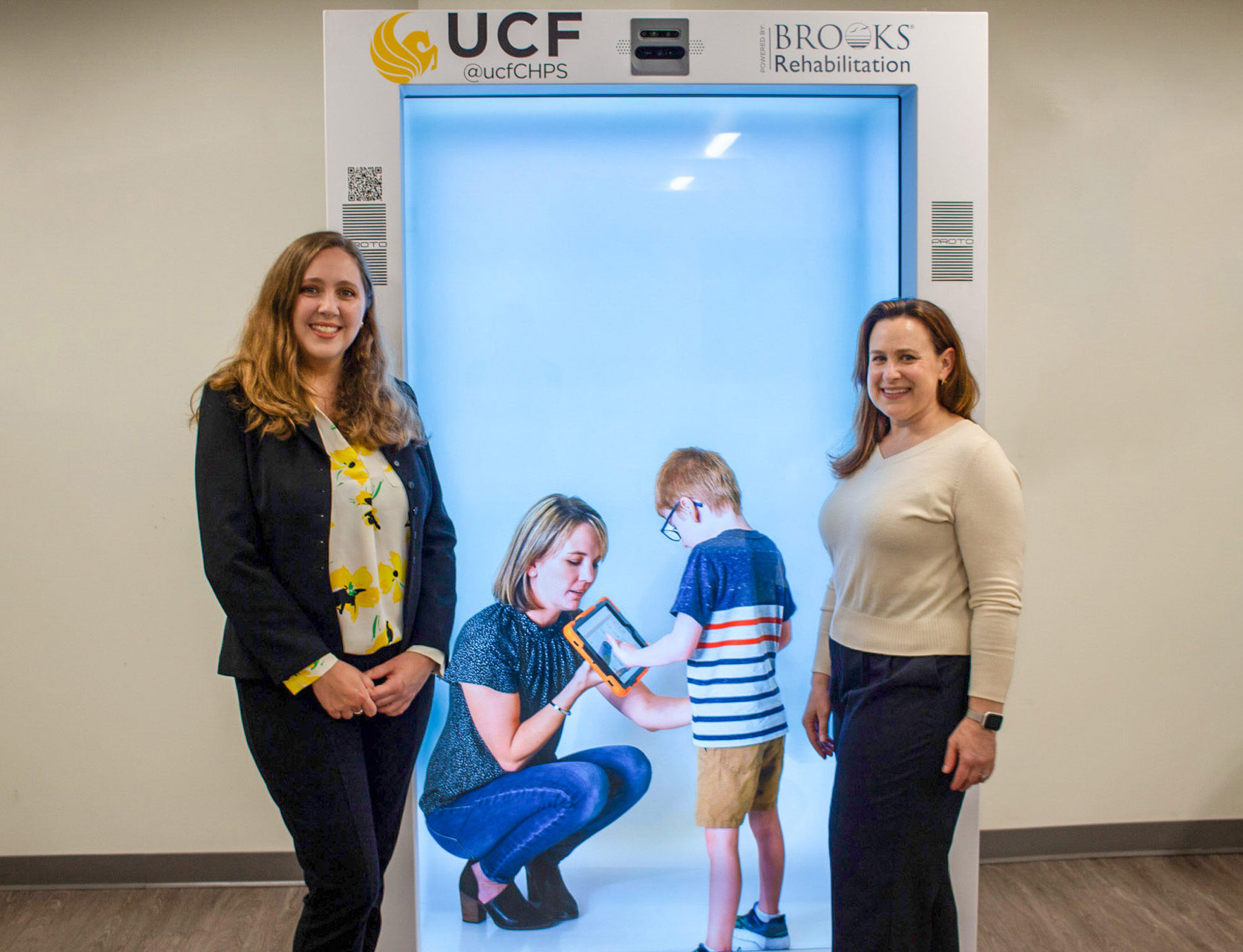
The Rehabilitation Innovation Center’s hologram technology keeps advancing healthcare education in “out-of-the-box” ways. The next exciting expansion will be the development of a first of its kind holographic library focused on sharing the lived experiences of adults who use augmentative and alternative communication (AAC), a project funded by a $100,000 grant from the WITH Foundation which will be led by Assistant Professor Julie Feuerstein and Associate Instructor Carolyn Buchanan in the School of Communication Sciences and Disorders.
The Center’s hologram technology delivers vivid, life-sized video experiences that enable the audience to watch pre-recorded speakers or interact with a live speaker “beamed in” from anywhere in the world, generating a sense of co-presence and connectivity with viewers. The College of Health Professions and Sciences (CHPS) has already created a pre-recorded library of almost 100 patients, clinicians, caregivers and subject matter experts who “appear” in the hologram to share lived experiences and aid students and practitioners in refining their clinical skills. The grant from the WITH Foundation will add 10 more hologram recordings to the library, focusing on adults with disabilities who can face communication challenges — a condition that can affect the quality of healthcare they receive.
“By prioritizing the lived experience of adults who use AAC when developing the HAAC library, this project has the potential to drive meaningful change in healthcare communication between individuals with disabilities and their providers,” says Feuerstein. “The HAAC library also will transform the way we instruct students in healthcare and related professions.
The ultimate goal of the Holographic Augmentative and Alternative Communication (HAAC) library is to improve training for students and healthcare providers by providing cases of first-hand experiences from persons who use augmentative and alternative communication (PWUACC) who will share their preferences and priorities related to accessing high quality healthcare.
“Many people who rely on assistive technology experience challenges traveling to educational settings,” says Buchanan the project’s principal investigator. “Advances in technology, like the hologram, allow us to bring high quality instructional content to pre-service healthcare students.”
According to ASHA ProFind, only 6% of SLPs who work with adults indicate AAC as an area of expertise. This directly impacts the approximately 58% of adults with intellectual disabilities who experience communication difficulties, as many rely on the use of AAC in their interactions with providers. The HAAC Library will greatly benefit those who fall within both percentiles — adults with communication difficulties will have their voices amplified, while SLPs that work with them will be able to better understand their needs.
The creation of the library will take place through a 12-month process broken into three phases, each phase lasting three months, and will span from January to December of 2025. In phase one, PWUAACs, caregivers of PWUAACs, and healthcare professionals from both local and national organizations will provide feedback on the library’s learning objectives through a series of surveys and focus groups. Phase two will involve the filming of PWUACCs for the hologram library as they relay their lived experiences and what they believe is important for students and healthcare providers to know when administering care. The third, and final, phase is when the full HAAC Library will be shared with community collaborators and national organizations as well as integrated into UCF’s coursework for future speech-language pathologists.
The HAAC Library will be the first of its kind in several ways. Creating the library with the option to be used in a hologram machine brings the subjects to scale and in a manner that early studies have shown may link to an increase in provider empathy. The library will also be accessible in traditional video format, giving educators options as to how to present content in courses, regardless of course modality or distance from in-person presenters. Additionally, the new UCF library will focus on adults who use AAC and feature the opinions and experiences of PWUAAC rather than subject matter experts. Other training libraries for the pre-service education of SLPs address treatment needs of children, teens or young adults using AAC.
Buchanan and Feuerstein will collaborate with Tracy Rackensperger, a public service faculty member at the Institute on Human Development and Disability at the University of Georgia. Rackensperger is also a person with cerebral palsy who uses a power wheelchair and AAC devices. CHPS Video Production Assistant Maggie Flemming will support the project by assisting with the video creation. Students in the School of Communication Sciences and Disorders are expected to assist with data collection and analysis.
“We launched our hologram program over three years ago, and since then, it has grown into a globally recognized model adopted by universities and organizations around the world,” says Bari Hoffman, associate dean of clinical affairs at CHPS. “This grant allows the faculty researchers involved to take that same innovative technology known for its high realism and sense of co-presence and apply it to a critical new use case: connecting caregivers with the education and support they often lack. It’s a powerful example of how immersive technology can close gaps in healthcare by delivering meaningful, human-centered experiences at scale.”
UCF is one of nine organizations receiving grants from the WITH Foundation for healthcare equity projects. This is the second gift from the WITH Foundation for the College of Health Professions and Sciences. The group also provided funding for Project ECHO, in which researchers developed and delivered virtual educational training for speech-language pathologists centered on improving therapy for PWUAACs.
“WITH Foundation is excited to support these projects as they foster healthcare equity for adults with intellectual and developmental disabilities,” said Ryan Easterly, Executive Director of the WITH Foundation. “We are pleased to support these organizations because their work further empowers self-advocates, communities, and supports comprehensive healthcare.”

